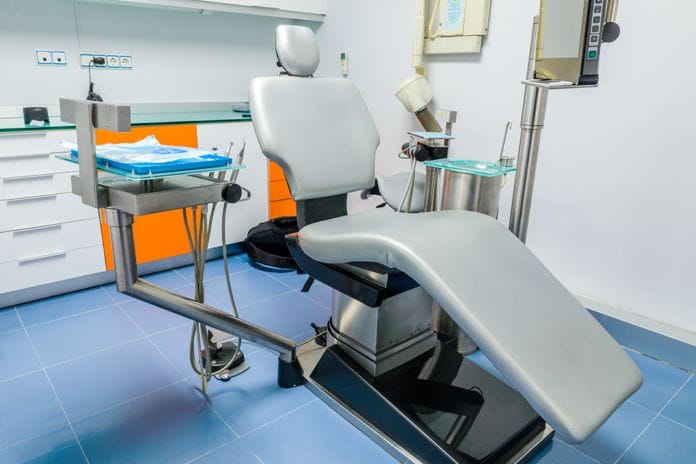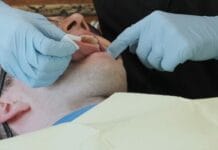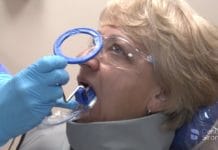The abundance of private practices purchased by corporations has risen over the last decade. This increase in corporate dental practices and understanding the corporate web has influenced my research on the long-term effects it may have on the dental community.
As a dental hygienist for over seventeen years, I have always been proud of the dental community for its ability not to be influenced by the insurance and pharmaceutical companies, and for maintaining its stance on a high standard of patient care. The dental community’s high level of standards is mandated by the ADA and The Dental Board of Examiners, as well as the private practice sector. Also, legislative advocacy has helped to establish an environment where the dental community can succeed by working closely with its state partners.
To understand a dental corporation, it is important to understand the difference between sole-owned private practice, group practice, and a corporation-based dental practice.
Sole-owned private practice is a dental practice that is owned and operated by a single dentist. The success of a sole-owned dental practice depends on the ability of the dentist to delegate, lead a team effectively, and have a full understanding of the financial aspect of the business. A group owned dental practice is owned and operated by more than one dentist; therefore, the operational and clinical responsibilities are typically determined at the time of the partnership and delegated among the partners. Finally, a dental corporation is owned and operated at a corporate level and controlled by a board of shareholders. As a result, the dentist(s), clinical, and front desk staff are employees of the corporation. Most corporations delegate an office manager to manage the clinical and front desk staff and have a “one size fits all” model.
Dental corporations have increased in population by 49%, based on an economic census conducted in 2007 by the US Census Bureau. A dental corporation is typically a franchise with multiple locations statewide. The blueprint of a dental corporation is based on profit margin, which can reduce the standard of care. The benefits of working for a corporation are that it relieves the dentist(s) of the administrative responsibility and allows more flexibility in scheduling. However, the downside is that the “one size fits all” model hinders the autonomy of the clinical employees, whether it’s the practicing dentist(s) or licensed dental hygienist(s).
The dental corporations have created a less than perfect picture in the dental field, one that does not involve the highly coveted personal patient relationships and high standard of care that, we, as dental professionals in the private sector, have experienced. The emphasis on profit-based dentistry can have a negative effect on patient care. This impact can result in lower quality of care by assembly line dentistry.
Corporate dental offices may mandate selling of dental products and treatment, in addition to production quotas for the staff. This poses multiple problems, such as inadequate appointment times, non-clinical staff recommending treatment, and non-conservative treatment being performed. An inadequate patient appointment time not only affects the quality of care but can interfere with the interaction between the patient and clinician, resulting in lack of patient trust and patient-clinician relationship. The sales quotas cause unnecessary product and treatment recommendation, as well as the allocation of improper products by non-clinical staff. Lastly, and most importantly, non-conservative treatment recommendation has been a growing problem in corporate dentistry and has been a newsworthy cause of litigation against some of the larger dental corporations. This, too, creates a lack of trust in an industry that has attempted to maintain its dignity by not allowing untested treatment recommendations and industry standards to be hijacked by insurance and pharmaceutical companies, as has happened in the medical sector.
Although the private dental practice has the ability of full clinical autonomy, its success depends on the dentist’s ability to maintain all administrative and financial responsibilities.
This results in a higher standard of care and closer patient relations, and it also limits the volume of patients that can be seen on a daily basis. As a reward for the added responsibility and liability the dentists of privately owned practices assume, they tend to benefit from an income that is typically ten to thirty percent higher than corporate dentists.
Another negative effect that a dental corporation has on dentistry is the lack of competition in dental sales and suppliers making it more difficult for the privately owned dentist to compete. Due to corporations purchasing in larger quantities because of multiple-owned offices, the suppliers can distribute at a much higher volume and at a lower cost. This is not typical of private dental practices because of lack of space in which to store materials, fewer patients seen, and lower profit margins. Therefore, they pay for supplies at a higher purchase rate, thus reducing their profit margins.
In 2012, the ADA surveyed dentists working in a dental corporate environment and concluded that the dentists favored corporate dentistry over sole proprietorship because of the work vs. life balance, the lack of interaction with insurance companies, the increased flexibility in the schedule, the interaction with other dentists, and the guaranteed salary. However, research has verified that there is a lack of clinical work autonomy, a lack of flexibility in administrative and clinical recommendations, higher employee turnover, and a decrease in standard of care.
As we see, due to an increase in private practices being turned over to dental corporations, it is important that we, as licensed clinicians, maintain our values and advocate for the patient by providing a high standard of care and by maintaining a positive image for the dental community. Since we have evolved over the years in educating the public on the importance in maintaining good oral dental care and its links to their overall health, we need to continue moving forward and legislate for our autonomy in a corporate world.
NOW READ: Increasing Productivity by Anesthetizing for Your Doctor Should Increase Your Paycheck
DON’T MISS: Front Desk: Help Where It Makes Sense, Without Stepping on Toes












